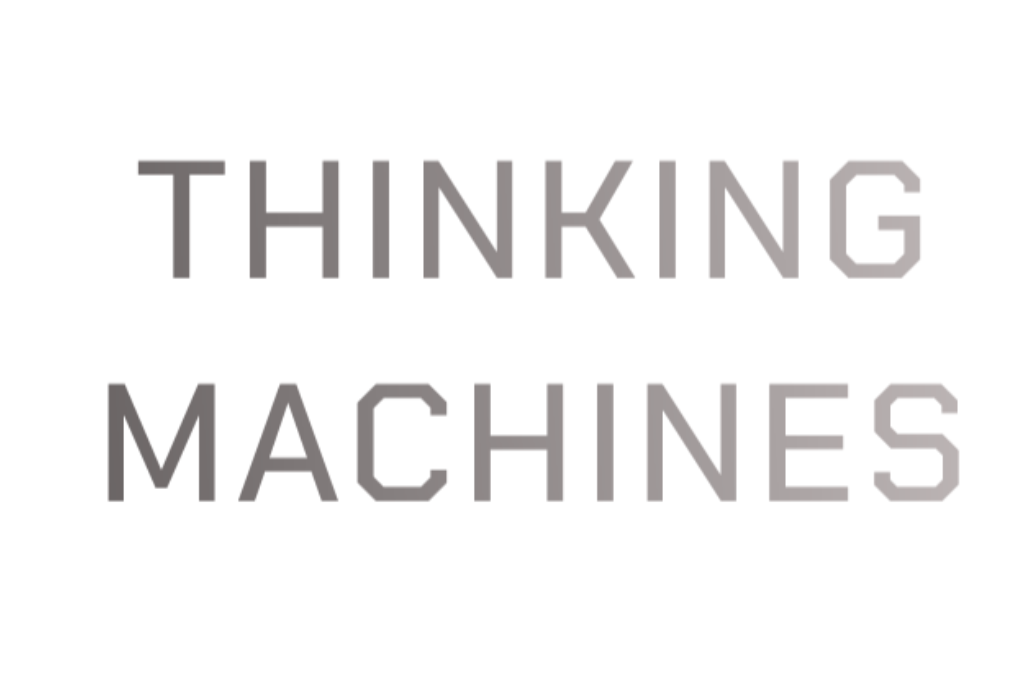AI Research
UK’s muddy saltmarshes vital to tackle climate change

Science correspondent, BBC News
 WWF
WWFThe UK’s saltmarshes are vital “sinks” that lock away climate-warming greenhouse gases in layers of mud, according to a new report from WWF.
Much of the UK’s saltmarshes have been lost to agriculture but the charity says they are unsung heroes in nature’s fight against climate change.
It is now calling for these muddy, tidal habitats to be added to the official UK inventory of how much carbon is emitted and how much is removed from our atmosphere every year.
This formal recognition could, it hopes, provide more of an incentive to restore and protect more of these sites.
 Victoria Gill/BBC
Victoria Gill/BBCWorking with researchers from the UK’s Centre for Ecology and Hydrology, a WWF team installed solar-powered greenhouse gas monitoring stations on Hesketh Out Marsh, a saltmarsh in North-West England that has been restored and is managed by the RSPB.
Analysing gases in the air flowing around the marsh – over the course of a year – revealed how plants there “breathe in” more carbon dioxide in the summer than they release in winter.
These new findings build on previous studies that have measured the amount of carbon in the marshland’s mud.
To carry it out, the team fixed analytical equipment to a sturdy 2.5m tall tower made of scaffolding poles. The site is regularly flooded by the tide, so the tower has kept their kit safe from salt water and debris.
With WWF’s ocean conservation specialist, Tom Brook as our guide, we waded through the thigh-high grass to visit the site of the experiment.
 RSPB
RSPBAt low tide, the sea is not visible beyond the expanse of grassland, but the area is littered with driftwood, some plastic waste and there is even a small, upturned boat nearby.
“The plants grow so quickly here in spring and summer that they almost grow on top of each other – layering and decomposing,” Tom said. “That captures carbon in the soils. So while we’re typically taught about how trees breathe in carbon and store that in the wood, here salt marshes are doing that as mud.
“So the mud here is just as important for climate mitigation as trees are.”
WWF has published its first year of findings in a report called The Importance of UK Saltmarshes. Unusually, this been co-published with an insurance company that is interested in understanding the role these sites have in protecting homes from coastal flooding.
The UK has lost about 85% of its saltmarshes since 1860. They were seen as useless land and many were drained for agriculture.
 Victoria Gill/BBC News
Victoria Gill/BBC NewsHesketh Out Marsh has been restored – bought by the wildlife charity RSPB and re-flooded by tide. Now, in late spring, it is teeming with bird life. A variety of species, including avocets, oyster catchers and black-tailed godwits, probe the mud for food and nest on the land between lagoons and streams.
The researchers hope the findings will help make the case to restore and protect more of these muddy bufferzones between the land and the sea.
“The mud here is so important,” explained Alex Pigott, the RSPB warden at Hesketh Out Marsh. “It’s is like a service station for birds.”
With their differently shaped bills – some ideal for scooping and some for probing – marshland birds feed in the tidal mud.
“We know these sites act as a natural flood defences, too and that they store carbon,” said Ms Pigott. “Any any of these habitats that we can restore will be a big win for nature.”
AI Research
Ray Dalio calls for ‘redistribution policy’ when AI and humanoid robots start to benefit the top 1% to 10% more than everyone else

Legendary investor Ray Dalio, founder of Bridgewater Associates, has issued a stark warning regarding the future impact of artificial intelligence (AI) and humanoid robots, predicting a dramatic increase in wealth inequality that will necessitate a new “redistribution policy”. Dalio articulated his concerns, suggesting that these advanced technologies are poised to benefit the top 1% to 10% of the population significantly more than everyone else, potentially leading to profound societal challenges.
Speaking on “The Diary Of A CEO” podcast, Dalio described a future where humanoid robots, smarter than humans, and advanced AI systems, powered by trillions of dollars in investment, could render many current professions obsolete. He questioned the need for lawyers, accountants, and medical professionals if highly intelligent robots with PhD-level knowledge become commonplace, stating, “we will not need a lot of those jobs.” This technological leap, while promising “great advances,” also carries the potential for “great conflicts.”
He predicted “a limited number of winners and a bunch of losers,” with the likely result being much greater polarity. With the top 1% to 10% “benefiting a lot,” he foresees that being a dividing force. He described the current business climate on AI and robotics as a “crazy boom,” but the question that’s really on his mind is: why would you need even a highly skilled professional if there’s a “humanoid robot that is smarter than all of us and has a PhD and everything.” Perhaps surprisingly, the founder of the biggest hedge fund in history suggested that redistribution will be sorely needed.
Five big forces
“There certainly needs to be a redistribution policy,” Dalio told host Steven Bartlett, without directly mentioning universal basic income. He clarified that this will have to more than “just a redistribution of money policy because uselessness and money may not be a great combination.” In other words, if you redistribute money but don’t think about how to put people to work, that could have negative effects in a world of autonomous agents. The ultimate takeaway, Dalio said, is “that has to be figured out, and the question is whether we’re too fragmented to figure that out.”
Dalio’s remarks echo those of computer science professor Roman Yampolskiy, who sees AI creating up to 80 hours of free time per week for most people. But AI is also showing clear signs of shrinking the jobs market for recent grads, with one study seeing a 13% drop in AI-exposed jobs since 2022. Major revisions from the Bureau of Labor Statistics show that AI has begun “automating away tech jobs,” an economist said in a statement to Fortune in early September.
Dalio said he views this technological acceleration as the fifth of five “big forces” that create an approximate 80-year cycle throughout history. He explained that human inventiveness, particularly with new technologies, has consistently raised living standards over time. However, when people don’t believe the system works for them, he said, internal conflicts and “wars between the left and the right” can erupt. Both the U.S. and UK are currently experiencing these kinds of wealth and values gaps, he said, leading to internal conflict and a questioning of democratic systems.
Drawing on his extensive study of history, which spans 500 years and covers the rise and fall of empires, Dalio sees a historical precedent for such transformative shifts. He likened the current era to previous evolutions, from the agricultural age, where people were treated “essentially like oxen,” to the industrial revolutions where machines replaced physical labor. He said he’s concerned about a similar thing with mental labor, as “our best thinking may be totally replaced.” Dalio highlighted that throughout history, “intelligence matters more than anything” as it attracts investment and drives power.
Pessimistic outlook
Despite the “crazy boom” in AI and robotics, Dalio’s outlook on the future of major powers like the UK and U.S. was not optimistic, citing high debt, internal conflict, and geopolitical factors, in addition to a lack of innovative culture and capital markets in some regions. While personally “excited” by the potential of these technologies, Dalio’s ultimate concern rests on “human nature”. He questions whether people can “rise above this” to prioritize the “collective good” and foster “win-win relationships,” or if greed and power hunger will prevail, exacerbating existing geopolitical tensions.
Not all market watchers see a crazy boom as such a good thing. Even OpenAI CEO Sam Alman himself has said it resembles a “bubble” in some respects. Goldman Sachs has calculated that a bubble popping could wipe out up to 20% of the S&P 500’s valuation. And some long-time critics of the current AI landscape, such as Gary Marcus, disagree with Dalio entirely, arguing that the bubble is due to pop because the AI technology currently on the market is too error-prone to be relied upon, and therefore can’t be scaled away. Stanford computer science professor Jure Leskovec told Fortune that AI is a powerful but imperfect tool and it’s boosting “human expertise” in his classroom, including the hand-written and hand-graded exams that he’s using to really test his students’ knowledge.
For this story, Fortune used generative AI to help with an initial draft. An editor verified the accuracy of the information before publishing.
AI Research
Mira Murati’s Thinking Machines Lab Publishes First Research on Deterministic AI Models

Thinking Machines Lab, the AI research company founded by former OpenAI CTO Mira Murati, has released its first public research under a new blog series titled Connectionism. Backed by $2 billion in seed funding and a team of former OpenAI researchers, the lab is focused on solving fundamental challenges in AI.
The inaugural post, authored by Horace He, explores how randomness in large language model inference arises from GPU kernel orchestration. The research outlines techniques to create deterministic responses, a breakthrough with potential applications in enterprise reliability, scientific research, and reinforcement learning. The publication marks a rare glimpse into one of Silicon Valley’s most closely watched AI startups as it prepares its first product launch.
AI Research
When you call Donatos, you might be talking to AI

If you call Donatos Pizza to place an order, you might be speaking with artificial intelligence.
The Columbus-based pizza chain announced that it has completed a systemwide rollout of voice-ordering technology powered by Revmo AI. The company says the system is now live at all 174 Donatos locations and has already handled more than 301,000 calls since June.
Donatos Reports Higher Order Accuracy, More Efficient Operations
According to Donatos, the AI system has converted 71% of calls into orders, up from 58% before the rollout, and has achieved 99.9% order accuracy. The company also says the switch freed up nearly 5,000 hours of staff time in August alone, allowing employees to focus more on preparing food and serving in-store customers.
“Our focus was simple: deliver a better guest experience on the phone and increase order conversions,” Kevin King, President of Donatos Pizza, said in a statement.
Ben Smith, Donatos’ Director of Operations Development, said the change provided immediate relief on the phones, allowing staff to redirect time to order accuracy and hospitality.
Donatos said it plans to expand the system to handle more types of calls and to make greater use of its centralized answering center. The company did not say whether it plans to reduce call center staffing or rely more heavily on automation in the future.
Other chains report trouble with AI ordering systems
Taco Bell recently started re-evaluating its used of AI to take orders in the drive-thru after viral videos exposed its flaws. In one well-known video, a man crashed the system by ordering 18,000 cups of water. The company is now looking at how AI can help during busy times and when it’s appropriate for a human employee to step in and take the order.
Last year, McDonald’s ended its AI test in 100 restaurants after similar problems surfaced. In one case, AI added bacon to a customer’s ice cream. A McDonald’s executive told the BBC that artificial intelligence will still be part of the chain’s future.
-

 Business2 weeks ago
Business2 weeks agoThe Guardian view on Trump and the Fed: independence is no substitute for accountability | Editorial
-
Tools & Platforms1 month ago
Building Trust in Military AI Starts with Opening the Black Box – War on the Rocks
-

 Ethics & Policy2 months ago
Ethics & Policy2 months agoSDAIA Supports Saudi Arabia’s Leadership in Shaping Global AI Ethics, Policy, and Research – وكالة الأنباء السعودية
-

 Events & Conferences4 months ago
Events & Conferences4 months agoJourney to 1000 models: Scaling Instagram’s recommendation system
-

 Jobs & Careers2 months ago
Jobs & Careers2 months agoMumbai-based Perplexity Alternative Has 60k+ Users Without Funding
-

 Podcasts & Talks2 months ago
Podcasts & Talks2 months agoHappy 4th of July! 🎆 Made with Veo 3 in Gemini
-

 Education2 months ago
Education2 months agoVEX Robotics launches AI-powered classroom robotics system
-

 Education2 months ago
Education2 months agoMacron says UK and France have duty to tackle illegal migration ‘with humanity, solidarity and firmness’ – UK politics live | Politics
-

 Funding & Business2 months ago
Funding & Business2 months agoKayak and Expedia race to build AI travel agents that turn social posts into itineraries
-

 Podcasts & Talks2 months ago
Podcasts & Talks2 months agoOpenAI 🤝 @teamganassi


